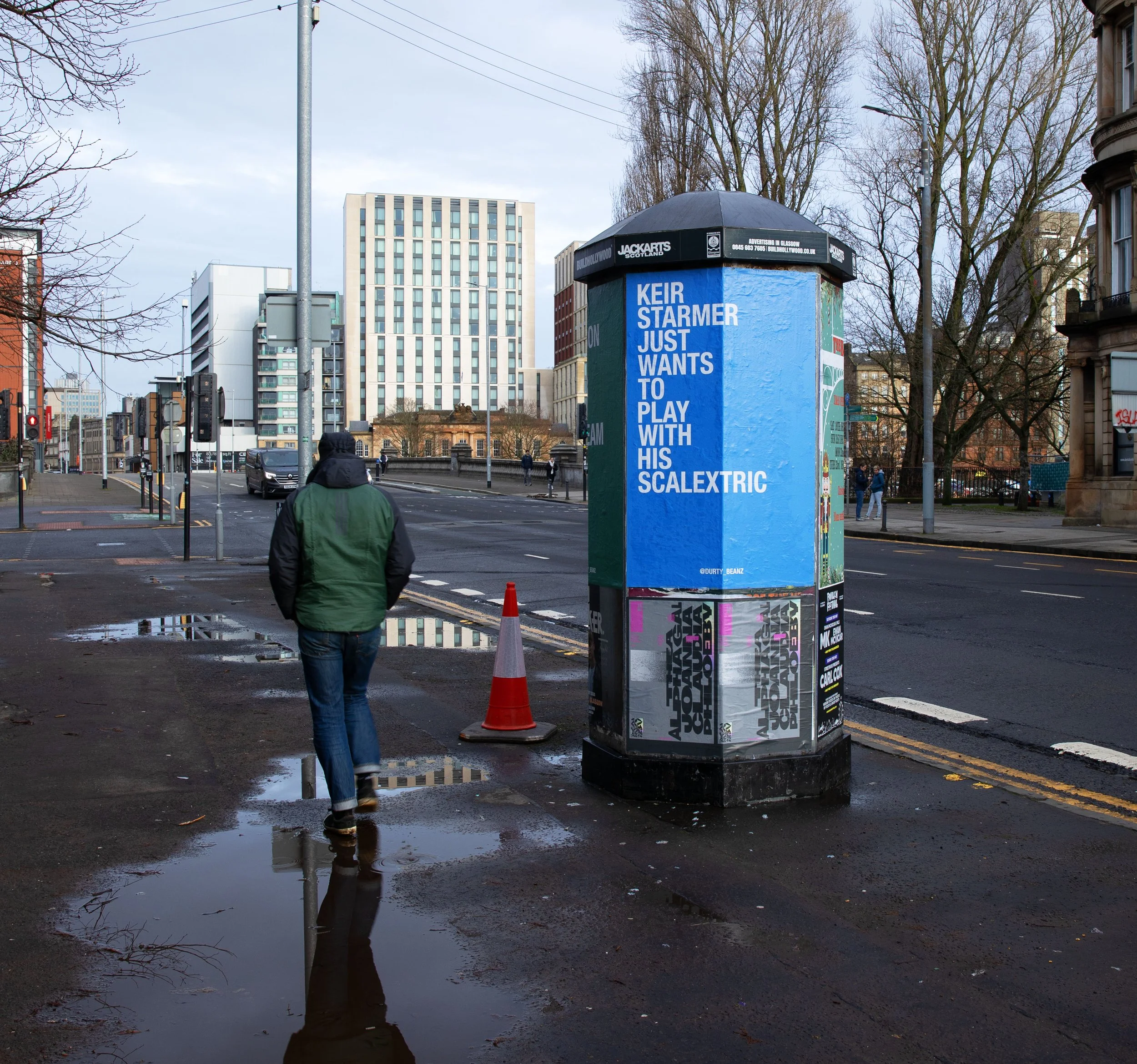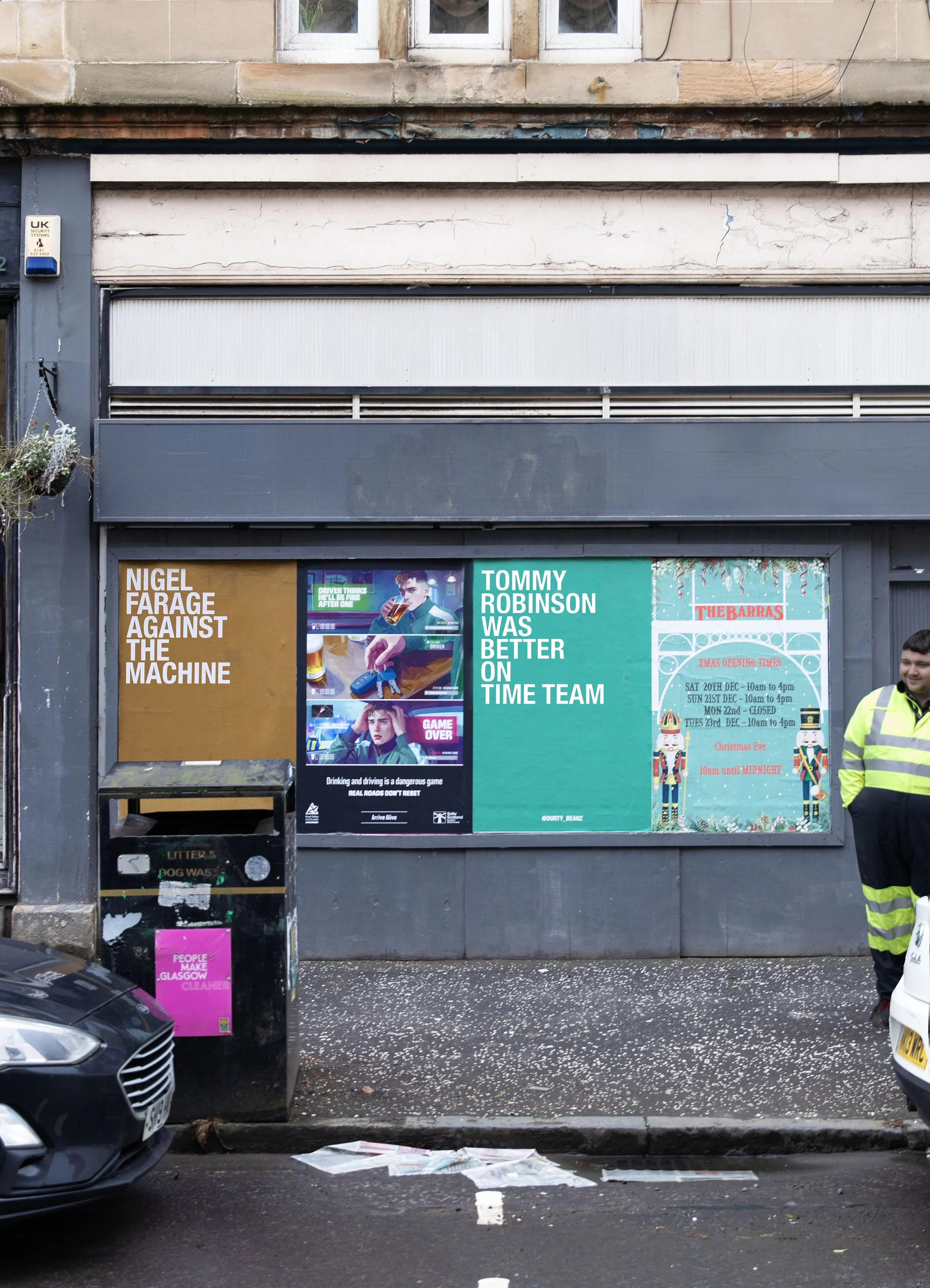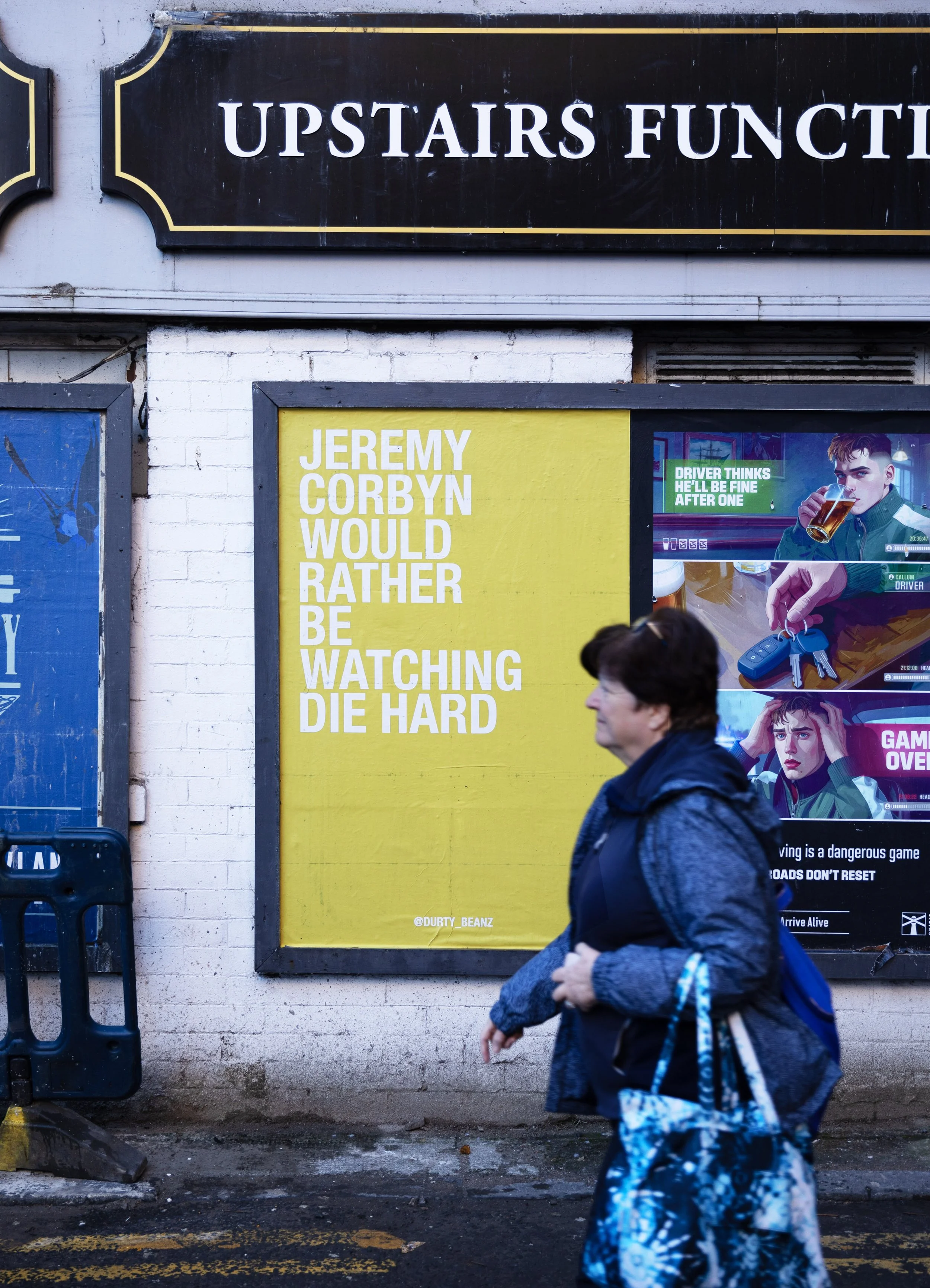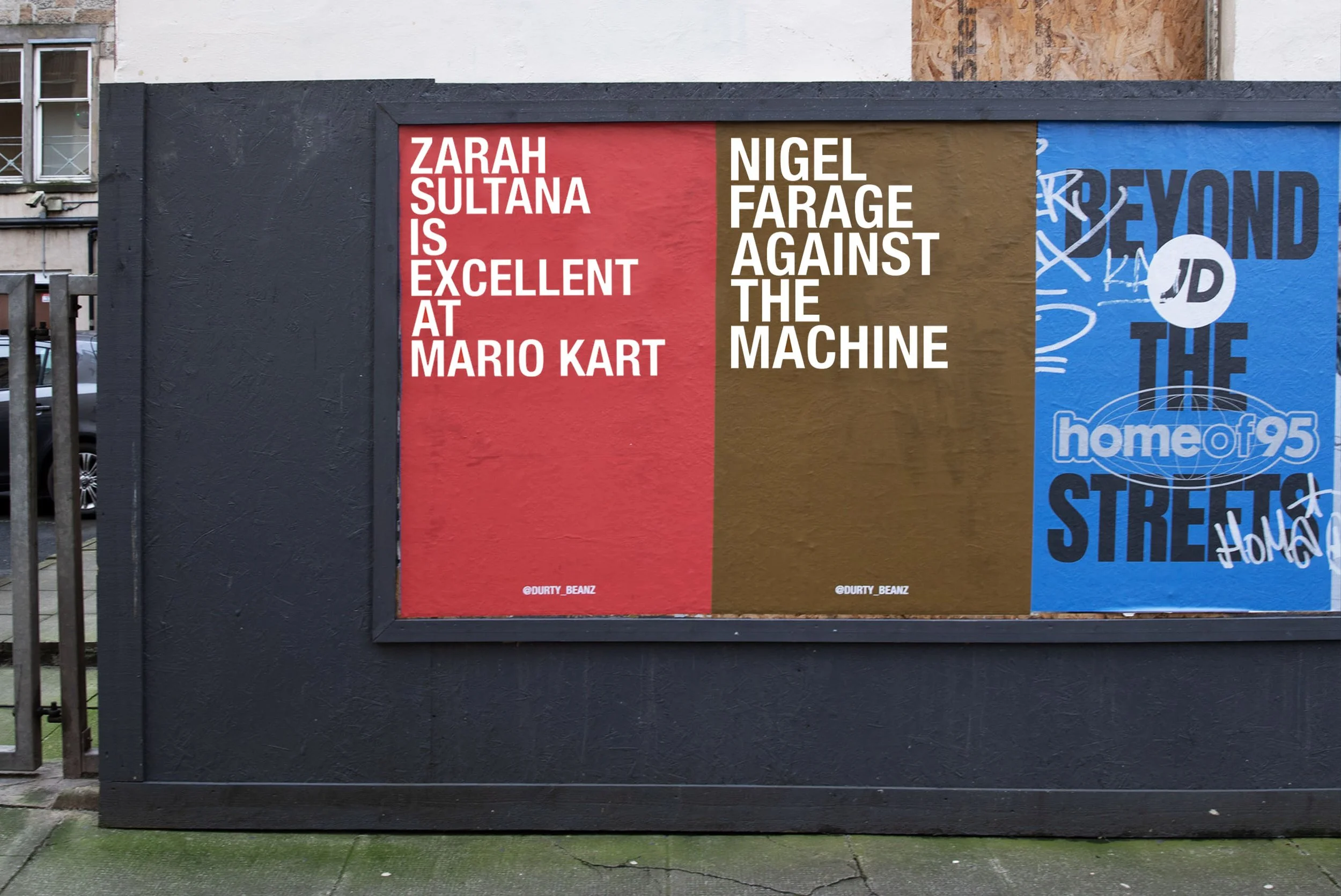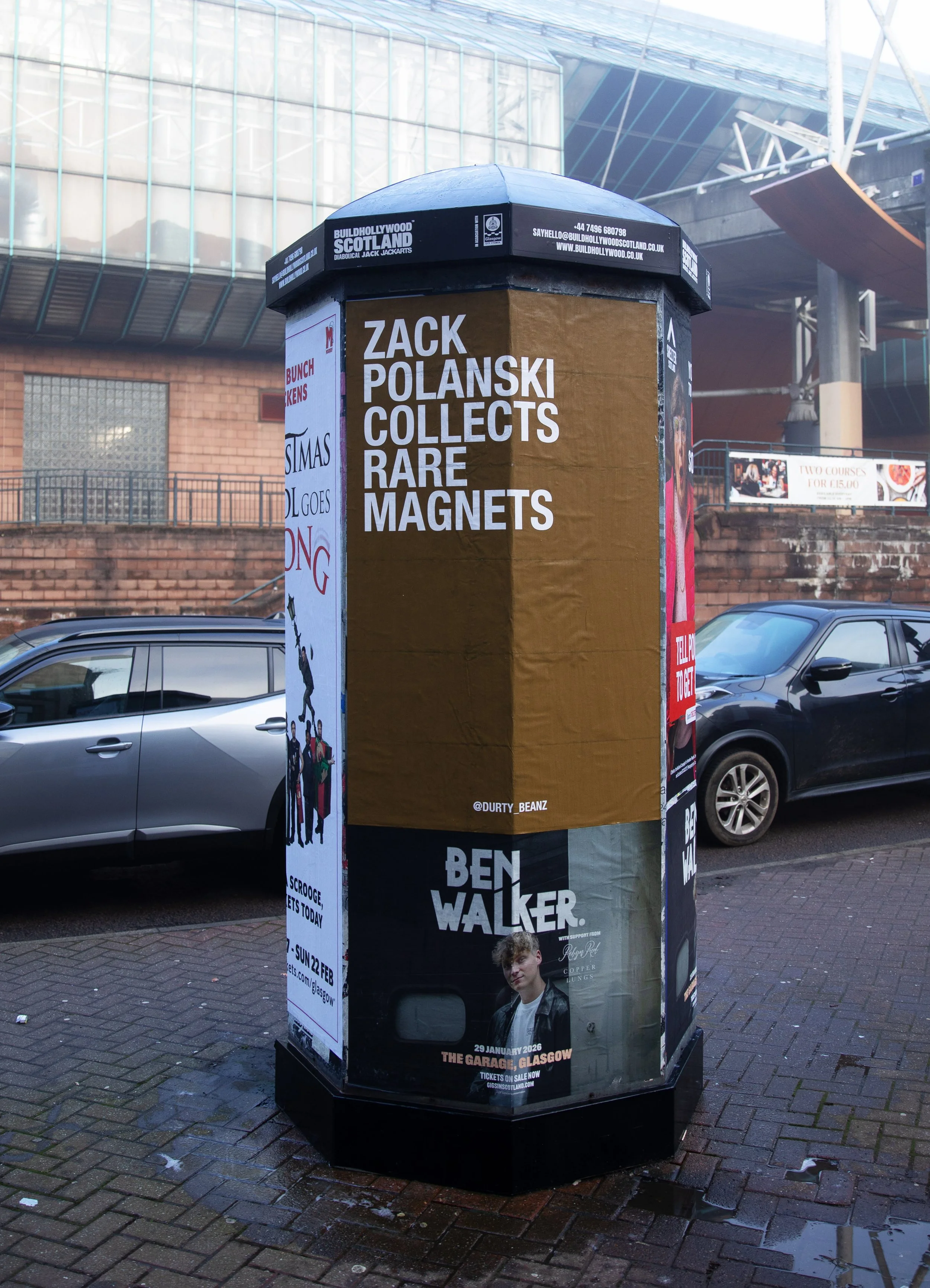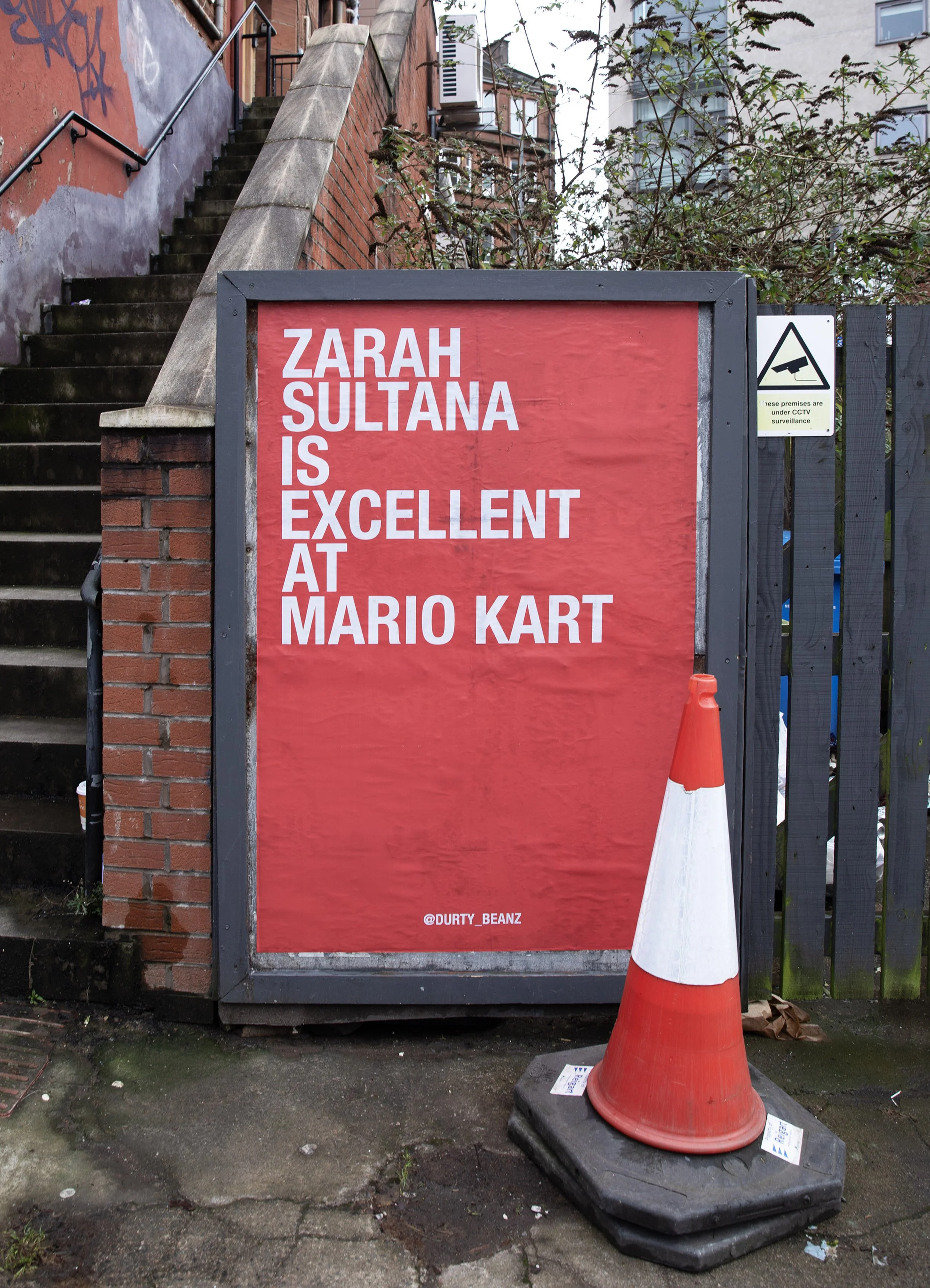It’s the way you tell ’em
Tommy Robinson. Zarah Sultana. Keir Starmer. I can feel myself tightening when I read these names, my body and mind bracing for whatever aggressive or cutting words almost always follow. With HWFG, however, it seems Durty Beanz (DB) are turning political language inside out. Each poster introduces a prominent British political name, then makes a completely unexpected linguistic move. Rather than smashing me in the face with vitriol, I’m met with wordplay, misunderstanding, children’s games, incongruous cultural references, and utterly surreal hobbies. They’re disarmingly benign; at times, almost tender. The obvious question is: do all these characters warrant such forgiving treatment?
HWFG (2025-26)
25 Advertising Hoarding Posters, Glasgow, Scotland, UK
Same ain’t the same
On the surface, painting Zack Polanski and Nigel Farage with the same gentle irreverence might seem to imply moral equivalence. However, the equity of the work’s approach allows each figure’s reputation shape how the statements about them operate. HWFG is therefore anything but an attempt to flatten moral or political differences. Nor should its apparent even-handedness be construed as a refusal to acknowledge the violence or cynicism embedded in certain political positions. Rather the work creates space both to reflect afresh on the names before us, and to consider how our own responses (revulsion, affection, fatigue) may have been shaped by years of exposure to polarised discourse.
Say what you see
A classic Helvetica font, familiar from a thousand advertising campaigns, sits on top of block-colour backgrounds of red, blue, yellow, green, and brown. At first, the colours read as party political; but, much like the writing, the posters quietly subvert expectation as quickly as they establish it. Instead, the colours are drawn from British road signs, imparting a deadpan informational neutrality that perfectly offsets the mischievous irreverence of the texts (after all, it’s the way you tell ’em).
.
Good afternoon, good evening and good night
In an era of acutely partisan politics and equally tribal comedy, it feels increasingly rare to find any cultural artefact willing, let alone able, to take on the most emotive political names and use them as a force for unity. HWFG’s refusal to amplify outrage should not, therefore, be read as an abdication of accountability or critique. On the contrary, it acts as a small public antidote to our increasingly individualised and divided lives: a generous piece of political commentary that finds humour not as a weapon, but as a bridge.
HWFG was delivered in coordination with BuildHollywood / Jack Arts

